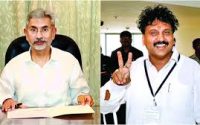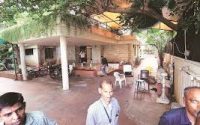‘No takers’, Gujarat removes bond clause for 2 PG medical courses
Source: indianexpress.com
THE state government has decided to remove the mandatory condition of Rs 50 lakh Compulsory Service Bonds for admission in two postgraduate medical superspeciality courses – paediatric surgery and cardiothoracic vascular surgery – in state government medical colleges from the academic session 2019-20, citing no takers since the condition was introduced in 2014. A state government resolution (GR) regarding this was issued on September 9.
Confirming the move, Dr M F Shaikh, Director Post Graduate Studies and Research BJ Medical College, said, “As we were not finding any student for these two courses since this bond was introduced it was suggested that the state government removes this condition. We hope that after this, students will apply to these courses.”
Referring to its previous two government resolutions (GRs) issued on May 26, 2014 and October 13, 2014 where the mandatory serving in a government hospital for a minimum of two years was increased to three years for students after completion of their postgraduate course, the September 9 GR states, “The seats in superspeciality paediatric and cardiothoracic vascular surgery courses are lying vacant for the last few years as students are not taking admission.”
The GR states that major paediatric surgeries are conducted for impairments by birth due to which these cases are not covered under the insurance mediclaim. Thus, parents have to bear the cost of surgeries conducted in private hospitals. However, the GR further states, with the advanced 3D and 4D sonography tests, such impairments are detected during examinations before birth where such pregnancies are aborted under rules. Thus, over a period of time, congenital impairments are on a decline among affluent families.
Contrary to this, the situation is completely different at BJ Medical College and Civil Hospital which is the state’s only hospital where facilities of paediatric surgeries are available. Not only patients from the state, but also from neighbouring states visit the health facility thus causing a lot of workload on the hospital.
“If students do not take admission in these superspeciality courses, patients cannot be offered medical services. …This will have negative impact,” the GR further states.
Similarly, due to technological advancements in cardiology services, number of cardiothoracic vascular surgeries have also gone down.
“Due to these reasons, it is the least priority of students nowadays to take admission in cardiothoracic vascular surgeries and paediatric surgeries. This is a reason, the state government was considering doing away with bond in these two super speciality courses,” the GR states.
The decision has been communicated to the Medical Council Committee (MCC) for candidates appearing for the National Eligibility-cum-Entrance Test (NEET) super speciality counselling session.
On August 20, the Supreme Court upheld the imposition of Compulsory Service Bonds for admission to PG medical and super speciality courses in a civil appeals along with a writ petition filed by the Association of Medical Super Speciality Aspirants and Residents who sought quashing of the conditions imposed in states of Andhra Pradesh, Goa, Gujarat, Himachal Pradesh, Karnataka, Kerala, Maharashtra, Orissa, Rajasthan, Tamil Nadu, Telangana and West Bengal.
The apex court in its order stated that “the states are free to legislate on the subject matter of medical bonds,” adding that “the notifications issued by the state governments imposing a condition of execution of compulsory bonds at the time of admission to postgraduate courses and super speciality courses cannot be said to be vitiated due to lack of authority or competence. The field of bonds requiring compulsory employment is not covered by any Central Legislation”.
Earlier, the Gujarat High Court in its order by a division bench on July 31,2019 stayed the impugned order of a single bench of April 12, 2019 that had quashed the Gujarat government’s resolution that required post-graduate medical students of government-run medical colleges to sign a bond/surety of Rs 10 lakh to serve in rural areas, calling it “unreasonable, unjust, unconscionable and infringing of Article 12 of the Constitution.”



